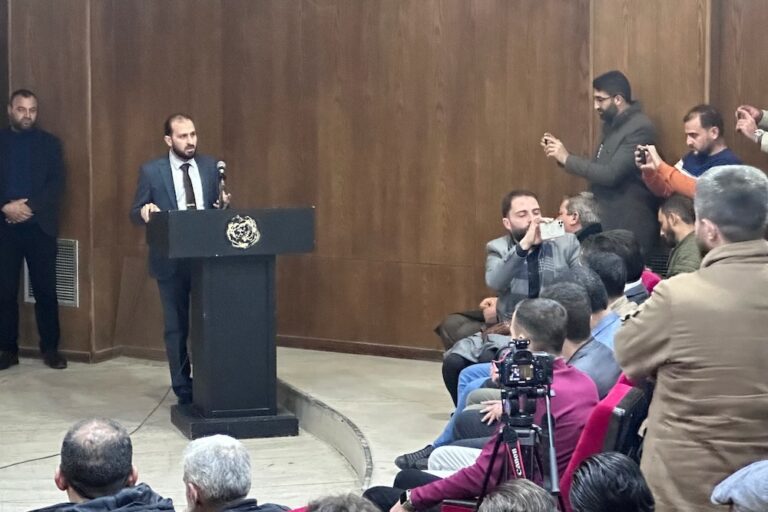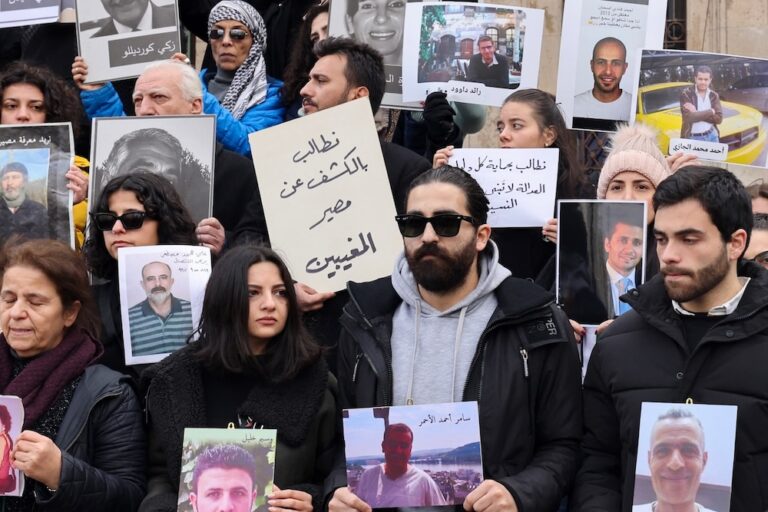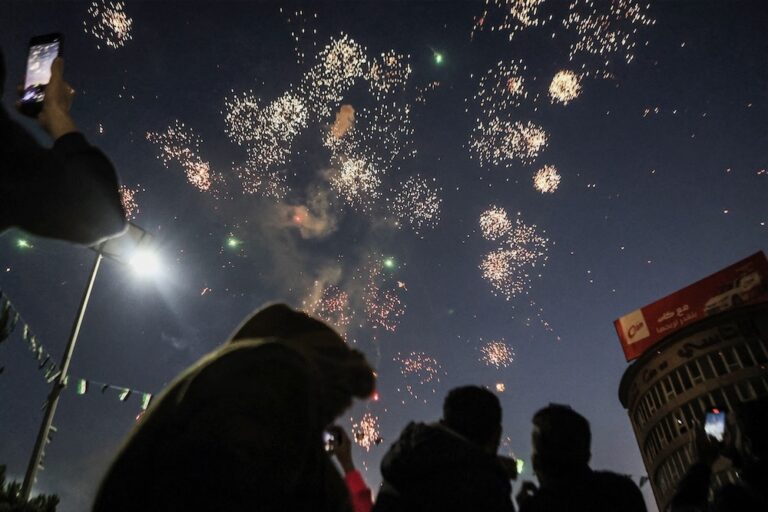At least 100 residents were killed during a security forces' military assault on the city of Hama, according to local human rights groups.
(Human Rights Watch/IFEX) – New York, August 4, 2011 – Syria should respond to the United Nations Security Council’s condemnation of its use of force against civilians by ending attacks on overwhelmingly peaceful protesters across the country, Human Rights Watch said today.
The Security Council on August 3, 2011, adopted unanimously a presidential statement on Syria. It “condemned the widespread violations of human rights and the use of force against civilians by the Syrian authorities,” called on the government “to respect its human rights obligations,” and deplored the “lack of progress” in reform.
“The Security Council’s unanimous statement shows that Syria can no longer count on even its close allies to support its crackdown on peaceful protesters,” said Peggy Hicks, global advocacy director at Human Rights Watch. “President Bashar Assad needs to listen to the council’s strong message, and end the attacks by his security forces in Hama and across the country.”
The Security Council was finally spurred to action following the Syrian security forces’ military assault on Hama, Syria’s fourth largest city, which started on July 31. At least 100 residents were killed in the attack, according to local human rights groups. They reported that water, electricity, and communication lines were cut in Hama in the early hours of August 3, as tanks and armored vehicles advanced toward the central Assi Square.
The presidential statement also called on Syria “to cooperate fully” with the UN Office of the High Commissioner for Human Rights, which has sought to investigate the situation in the country. On April 29, the UN Human Rights Council asked the Office of the High Commissioner to conduct an investigation, but Syria’s government has denied the requests of the high commissioner’s team for access to the country.
“Syria needs to allow human rights monitors access to the country and freedom to conduct their investigation, as a starting point,” Hicks said. “Security Council members should make the council’s call for cooperation meaningful by demanding immediate access for the high commissioner’s team.”
A key sticking point in Security Council discussions over the statement was Syria’s claims that “armed gangs” were responsible for the violence. Some countries had proposed language that would have equated violence by Syrian forces with the actions of the protesters by simply calling on “all sides” to stop the violence. Instead, the Security Council explicitly condemned Syrian authorities for “widespread violations of human rights and use of force against civilians,” while calling for restraint on all sides.
“There’s an easy way to check Syria’s claims about armed gangs – allow independent investigation of all parties,” Hicks said. “By refusing to allow access for the investigation mandated by the UN Human Rights Council, Syria calls into question the credibility of those claims.”
Lebanon joined in the unanimous adoption of the statement, but immediately thereafter “disassociated” itself from the outcome, a step that does not alter the statement’s nature or effect.
Syria will remain on the Security Council’s agenda, as the statement also asked the UN secretary-general to provide an update on the situation in Syria within seven days. At that time, the Security Council should look closely at how Syria responded to the presidential statement, and take further steps as needed, Human Rights Watch said.


